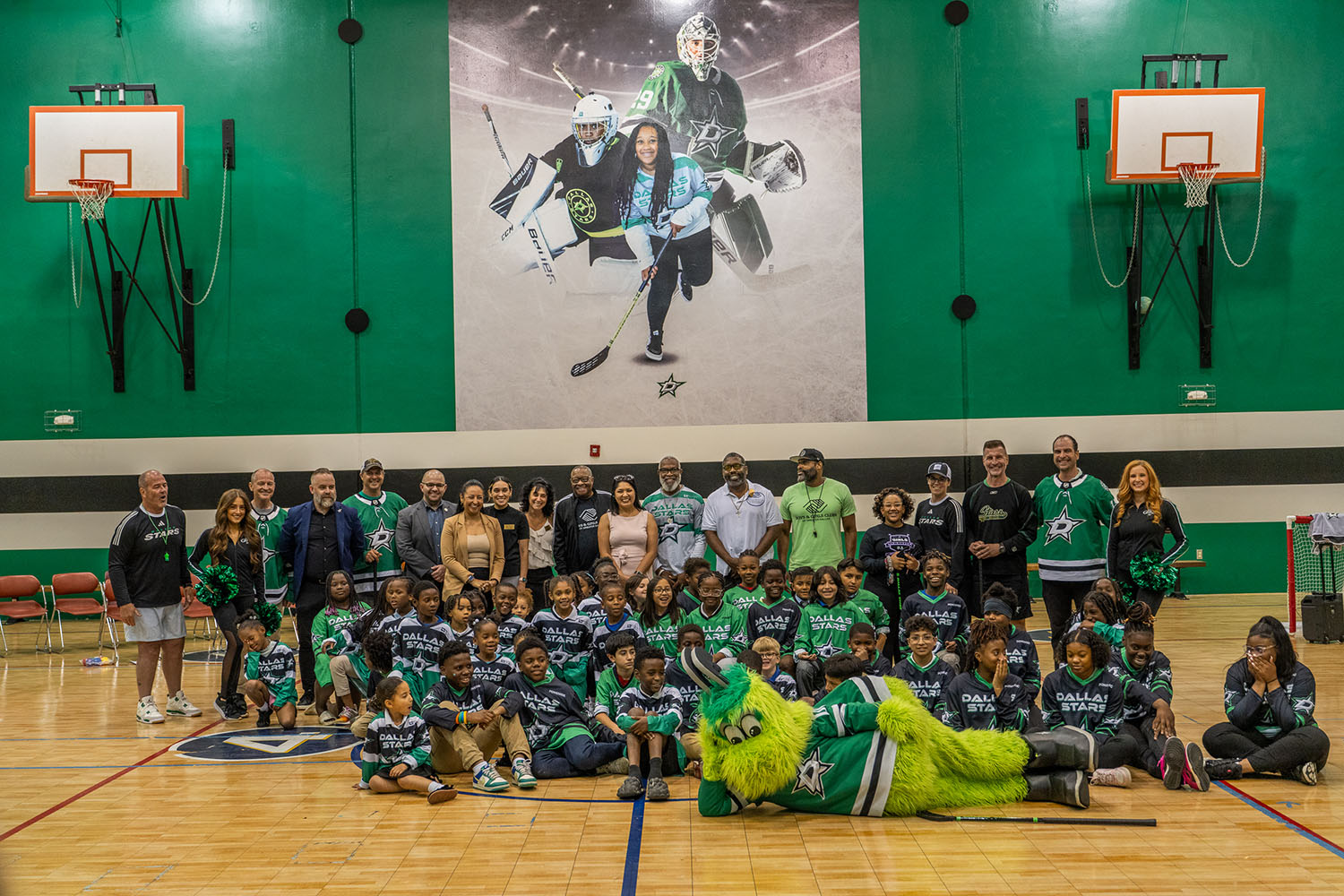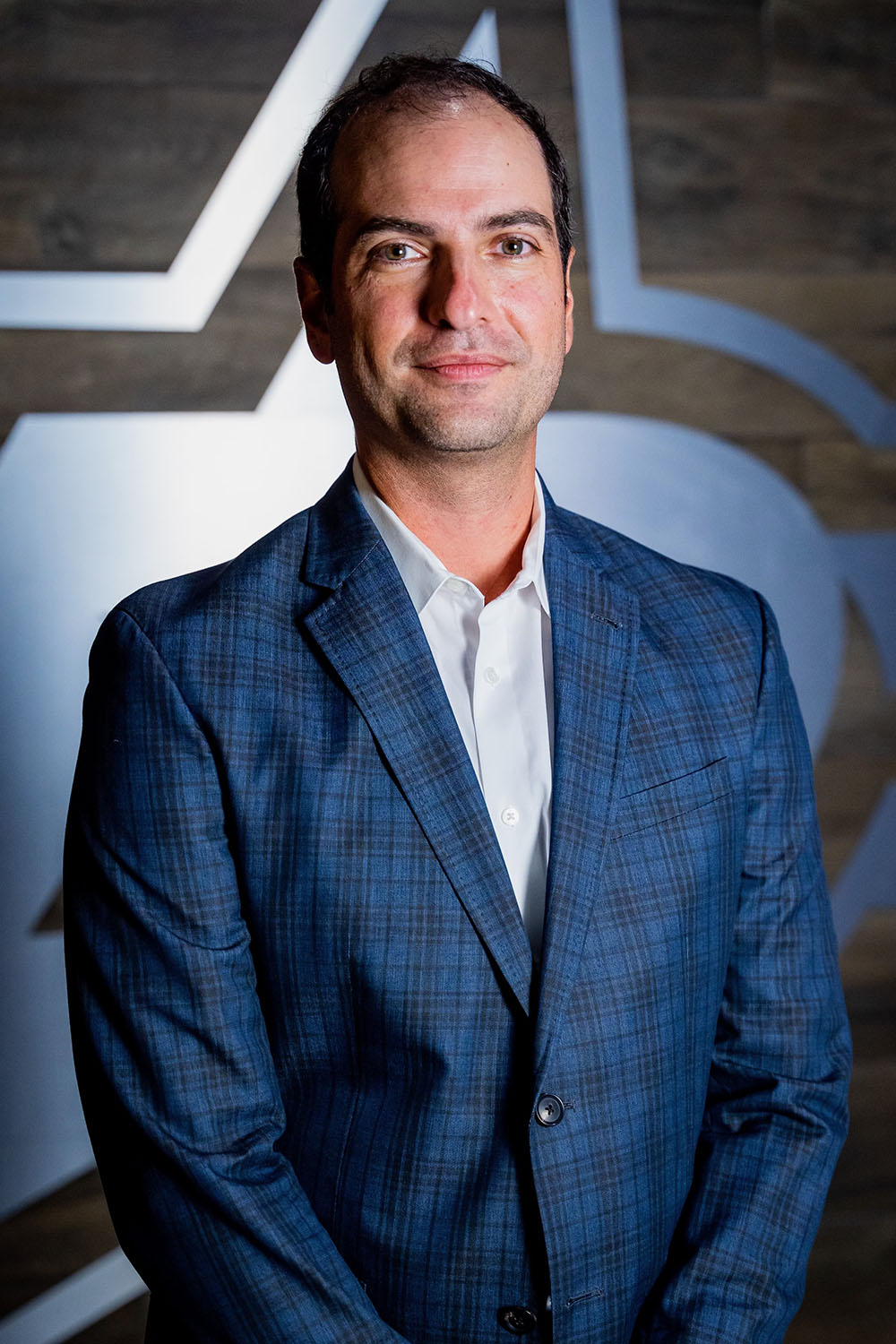Story by Jennie Trejo. Photos provided by the Dallas Stars Foundation.
The Cedar Springs Boys & Girls Club unveiled a newly refurbished gymnasium last month, thanks to the Dallas Stars and their Future Stars initiative.


Al Montoya, the Dallas Stars’ Director of Community Outreach, explains that this program, done in partnership with the National Hockey League (NHL) and the NHL Players’ Association, aims to introduce hockey to children who might not otherwise have the opportunity to play. The initiative eliminates the cost barrier by providing free access to equipment and facilities.
“It’s about giving kids in Dallas the chance to try hockey without the financial burden. Through partnerships with local organizations, we’re able to bring the sport to those who might not have considered it before,” Al explains.
The Cedar Springs Boys & Girls Club’s ribbon cutting turned into a lively pep rally and an opportunity for the children to play hockey with Stars players and alumni. The refurbishment includes new ball hockey equipment, a state-of-the-art scoreboard, fresh paint, and vibrant decorations.
“Seeing the kids’ faces light up when they walked into the refurbished gym was priceless,” Al says. “They’re the future of the sport. The accomplishments the team is having on the ice are fantastic, but it also allows us to amplify our involvement in the community.”
The Future Stars initiative has grown significantly since its inception. Al notes their impact has expanded to ten refurbished Boys & Girls Club gyms, 16 Dallas Parks & Recreation Centers, and two school gymnasiums in Grand Prairie ISD.
The program doesn’t stop at refurbishing gyms and providing equipment; it also includes taking kids to their first professional hockey game.
“In the two years since we started, we’ve brought over 1,000 kids to experience a game at the American Airlines Center,” Al shares. “It’s an unforgettable experience that deepens their connection to the sport.”
For Al, the mission to grow hockey in underrepresented communities is deeply personal. Raised by a single mother who fled Cuba, Al found solace and opportunity in sports, eventually becoming the first Cuban American to play in the NHL.
“Hockey was my equalizer. It didn’t matter that I was different; on the ice, I was just another player,” he reflects. His experiences drive his commitment to ensuring all kids have access to hockey, regardless of their background. “I didn’t see many people who shared my last name or spoke Spanish in the sport.” Now, Al want to help be that representation for the next generation.
Al credits the sport of hockey for many of the blessings in his life. Now retired, he says that growing the game has turned into his second career. “You know, I’m just looking for the community to have fun and enjoy this game. Really, all I’m doing is sharing a sport that has connected people for so long. I can’t say enough about hockey, and what it teaches you, and what it permitted for me.”
Al is happy that the Boys & Girls Club children had an opportunity to meet and interact with a few of the Stars alumni.
“I didn’t meet my first professional athlete until I became one,” Al says. “I always tell our players that they are an inspiration. The kids look at the murals on the walls or the TV, and they’ll ask, ‘Is that you?’ and say, ‘I want to be a player too.’ The youth care so much and just want to be invited. That’s what this is– an invitation to be a part of the Dallas Stars family.”
Al’s passion for growing hockey isn’t confined to Texas. He recently traveled to Mexico City to launch a Learn to Play initiative in collaboration with the Mexican Ice Hockey Federation. “We started a six-week program for kids aged 4 to 10, and the response was overwhelming,” he says. “Fifty kids signed up within seven days. The love for hockey is growing globally, and we aim to play a game in Mexico City in the near future.”
The Future Stars program is a testament to the power of sports in building community and providing opportunities. Under Al’s leadership, the Dallas Stars are not only fostering a love for hockey but also ensuring the sport is accessible to everyone. As Al aptly put it, “This is our community, and we want everyone to enjoy the game we love.”
Sign up with your email address to receive good stories, events, and volunteer opportunities in your inbox.